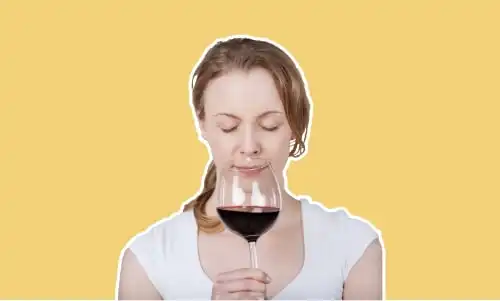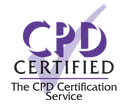
Learn the basics of
Wine Appreciation
Module 1 is all about the basics. In this module, I will introduce you to the wonderful world of wine. You will learn what wine is all about, including how to navigate the wine bottle, how to pour wine and finally, how to taste! Once the foundations have been set, we’ll get to know how wine is made and learn about different types of wine, including white, red, rosé and sparkling wine.
6,702
Graduates
All levels
Certified

Course details
MODULE 1
Diploma in Wine Appreciation
MODULE 1
Diploma in Wine Appreciation
1.What is Wine?
Lesson 1 kicks of in the ancient times where we explore the origin of wine and how it has journeyed through the ages. Wine is made from grapes, and we will start discussing the basics of how grapes are grown and what makes wine taste like wine. This lesson sets up the foundations for your journey into the world of wine.
2.Bottle Basics
After unpacking the contents of a wine bottle, we will discuss the bottle itself. We'll touch on the cork and cap debate and look into alternative wine packaging. Climate change is a pressing issue in society today and in this lesson we will look at the carbon footprint of the wine industry as well as some innovation towards a greener future.
3.Pouring Wine
Before the first droplet of wine reaches our wine glass, we now understand that that grapes undergo quite the journey in order to get there. Grapes are grown and subjected to different manipulations and procedures before being captured in the bottle. In this lesson we talk about the importance of the wine glass and why the vessel matters. We will discuss the act of decanting and how this benefits wine. We will introduce how to serve red, white, rose and champagne wines.
4.Time to Taste
We'll demonstrate the in's-and-out's of how to prepare for a formal wine tasting as well as tips on how to set up tastings. we will introduce certain tools like aroma wheels, colour charts and flavour wheels as tools to aid you in developing your own palate and translating your experience into words.
5.White Wine
Time to put the skills in the first 4 lessons into action. in this lesson we will learn how to pour, serve and taste white wine. From the set up of the tasting, to pouring and serving temperature to practical tasting skills and analysis.
6.Rosé Wine
Time to put the skills in the first 4 lessons into action. in this lesson we will learn how to pour, serve and taste rosé wine. From the set up of the tasting, to pouring and serving temperature to practical tasting skills and analysis.
7.Red Wine
Time to put the skills in the first 4 lessons into action. in this lesson we will learn how to pour, serve and taste red wine. From the set up of the tasting, to pouring and serving temperature to practical tasting skills and analysis.
8.Champagne Showers
Time to put the skills in the first 4 lessons into action. in this lesson we will learn how to pour, serve and taste sparkling wine. From the set up of the tasting, to pouring and serving temperature to practical tasting skills and analysis.
MODULE 2
Intermediate in Wine Appreciation
MODULE 2
Intermediate in Wine Appreciation
1.Grape Growing
Kick off module 2 with a lesson about viticulture. We'll learn about the growing cycle of the grapevine and introduce the elements that go into growing good quality grapes.
2.Grapevine Architecture
In-depth discussion of all the factors that go into selecting a site for planting vineyards and how that will affect wine quality. Discuss factors that make up terroir - climate, topography and soil. Differentiate between vineyard training vs. vineyard trellising. introduce alternative viticultural practices.
3.It's Harvest Time!
Harvest time is an excting time of year in the wine industry! In this lesson we're starting in the vineyard with understanding the process of berry ripening and how to sample grapes properly. From the vineyard we will move into the cellar where the steps to processing white grapes and red grapes will be listed and discussed. We will compare the use of agrochemicals in viticulture to integrated pest management strategies and discuss three main fungal diseases in viticulture.
4.Primary Alcoholic Fermentation
Understand what happens during the process of alcoholic fermentation. what happens chemically, what organisms are responsible for it, which factors influence it and what can potentially go wrong. We will discuss how the process of alcoholic fermentation is monitored and controlled, as well as common problems that can occur. Lastly, we will list adjustments that can be made to juice and wine.
5.Secondary Fermentation and Fortification
We have introduced secondary fermentation in wine in module 1, and in this lesson we will talk about the details. We will look at how malolactic fermentation works and how it influences wine. We'll look at the use of sulphur dioxide in wine as a preservative and lastly we will introduce fortified wines, discuss how they are made and look at some examples.
6.All About Oak
Oak and wine go way back. In this lesson, we will look at the history and origin of the oak barrel. We will learn about how they are made and what happens to wine when it is aged in oak. Different types of oak barrels will discussed, as well as alternate ways oak is used in wine.
7.Blending Wine
Before bottling, a wine needs to be 'finished'. We will discuss all the processes that go into finishing a wine and preparing it for bottling. The process of fining and filtering will be explained with examples.
8.Wine Bottling and Storage
We will walk through the steps of bottling wine in a bottling line and discuss the details of the process. The term 'bottle-shock' will be introduced and discussed. Wine undergoes changes as it ages in the bottle and we will take a closer look at the details of this process. Lastly, we'll talk about how to properly store wine at home, and how to know when to open it.
MODULE 3
Advanced in Wine Appreciation
MODULE 3
Advanced in Wine Appreciation
1.Principal Wine Styles and Grape Varieties - White
Introduce the main internationally recognised wine styles with examples.
2.Principal Wine Styles and Grape Varieties - Red
Introduce classic white wine varieties and explain their identifying characteristics in terms of typical style, defining aroma's and flavours and where in the world it's commonly produced.
3.Talk the Talk
We will recap on new terminology that has been introduced throughout the course thus far and show you how to use these new words to navigate a wine list with confidence.
4.Careers in the Wine Industry
The world of wine is a vast place filled with opportunity. It is an industry that encourages and values global learning and travel. In this lesson we will list and discuss different careers that one can have in the wine industry and how to go about it.
5.The Basics of Food and Wine Pairing - Sparkling Wine and White Wine
Food and wine are made for each other. In this lesson, we will look at the basics of food and wine pairing and equip you with the know how to do it on your own with confidence.
6.The Basics of Food and Wine Pairing - Rosé, Red and Fortified Wine
Food and wine are made for each other. In this lesson, we will look at the basics of food and wine pairing and equip you with the know how to do it on your own with confidence.
7.Common Wine Faults and How to Identify Them
We will identify common wine faults, their causes and learn how to identify them. Discuss the basics of how your body processes alcohol and what happens when you become intoxicated. We'll look into what a hangover looks like in the body and what are common 'cures' for a hangover. Lastly, we'll investigate what causes headaches, red cheeks or allergies when you drink wine.
8.The Egg
In this lesson, we will go back in time and learn about the amphora, which is still used in modern wineries today. We will understand the use of concrete fermentation and maturation vessels and how they effect the process of alcoholic fermentation, putting special focus on the concrete egg. We will finish off the lesson by introducing some alternative ways wine is made, matured and stored - including storing wine in the ocean!
MODULE 4
Proficient in Wine Appreciation
MODULE 4
Proficient in Wine Appreciation
1.Wines of the World - Old vs New
Your final module in wine appreciation will take you on a round-the-world trip in wine. We'll start our journey with an introduction to old world wines versus new world wines and what defines them.
2.France
First stop is in France. We will explore Bordeaux, Burgundy, Champagne, Loire Valley, Alsace and Rhone.
3.Italy
Next up we are in Italy. We will explore Piedmont, Tuscany, Veneto, Emilia-Romagna, Sicily, Lombardie, Umbria.
4.Spain
Lesson 4 takes us to Spain where we will explore regions like Ebro and Duero River Valleys (Rioja, Ribera del Duero, Toro, Rueda, Cariñena), Northern Mediterranean Coast(Cava, Priorat, Montsant), Southern Mediterranean (Utiel-Requena, Yecla, Jumilla, Bullas),Central Plateau(Méntrida, Uclés, Vinos de Madrid, etc),Andalucía(herry, Sierras de Málaga, Montilla-Moriles), The Islands (Islas Canarias, Illes Beleares).
6.Americas
In lesson 5 we visit the Americas! We'll go to South America: Chile (Maipo Valley, Cachapoal Valley), Argentina (Mendoza, Catamarca), Urguay (Montevideo) and North America: California, Washington, New York and Oregon.
7.Australia and New Zealand
Our journey into the new world of wine continues. In this lesson, we travel to Australia and New Zealand. We'll visit Western Australia (Margaret River), South Australia (McLaren Vale and Barossa Valley), Victoria (Yarra Valley), Sydney (Hunter Valley), Queensland (Stanthorpe), Tasmania. New Zealand: Marlborough, Hawke's Bay, Gisborne, Wairarapa, Canterbury, Cetral Otago.
7.South Africa
Lesson 7 takes us to sunny South Africa. We'll explore regions like Stellenbosch, Franschhoek, Paarl, Robertson, Swartland, Cape Town, Walker Bay, Bot River and Elgin.
8.Alternative Wines
The final lesson in the wine appreciation course will wrap up with all the weird and wonderful things happening in the world of wine. We'll look at alternative wine styles and natural wines as well as the future of the industry and all the opportunites it may hold.
